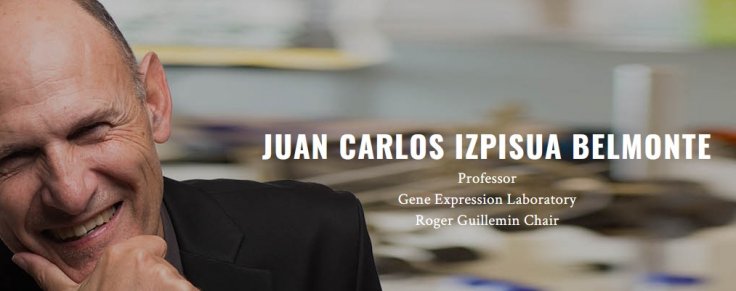
Reminiscent of age reversal in 2008 Hollywood flick 'A Curious Case of Benjamin Button' that tells the story of a man who starts aging backwards with bizarre consequences, or the South Korean film Miss Granny that was a hit in 2014 and remade in several Asian languages including its Telugu version 'Oh! Baby', here's a scientific experiment that made it possible but not forever.
Last month, global media was abuzz with the findings of scientist Juan Carlos Izpisúa Belmonte of the Gene Expression Laboratory at San Diego's Salk Institute for Biological Studies where he achieved age reversal on a mice. But the irony is that the mice survived for just four days before succumbing to death.
Salk Institute that was set up by Jonas salk, who developed the polio vaccine in the mid 1950s, has been in the forefront of gene therapy for decades. Scientist Izpisúa Belmonte, who was able to reverse the age in a mice, is not upbeat over what he calls "epigenetic" tweaks. He based his experiment on a Nobel-winning discovery by the Japanese stem-cell scientist Shinya Yamanaka who demonstrated how adding just four proteins to human adult cells could reprogram them so that they act like younger ones in a newly formed embryo. These proteins, called the Yamanaka factors, wipe out the epigenetic marks in a cell.

Pradeep Reddy, co-researcher at Salk who worked on these experiments with Izpisúa Belmonte, says, "You are erasing their (cells) memory." The cellular reprogramming had indeed occurred inside the mice but the results were cancerous or fatal. Izpisúa Belmonte gave mice a less lethal dose of reprogramming by partially rewinding the cells in mice with progeria.
They genetically modified the mice to produce the Yamanaka factors in their bodies, and this time they were given an antibiotic, doxycycline."When you give them ... doxycycline, expression of the genes starts. The moment you remove it, the expression of the genes stops. You can easily turn it on or off," explains Pradeep Reddy.
The mice lived 30% longer than their littermates. "That was the benefit," Izpisúa Belmonte says. "We don't kill the mouse. We don't generate tumors, but we have our rejuvenation. It completely rejuvenates. If you look inside, obviously, all the organs, all the cells are younger," he told Technology Review in an exclusive, but was upset that the mice survived only for four days.
So, the agenda ahead for Salk Institute scientists is to find the correct dose of treatment for rejuvenating youth for considerable period to make it realistic enough for humans or animals. The highly potent treatment used on the mice killed mice either from cell malfunction or due to tumors that developed in the body at an alarming rate.
"I think the kid that will be living to 130 is already with us. He has already been born. I'm convinced," he said brimming with confidence.









